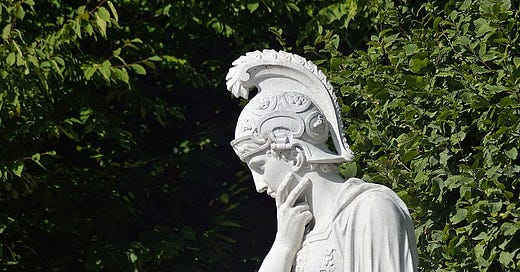Insight: Fabians, Milner Group And War
Britain commits to Ukraine, cuts pensions, announces austerity
Labour’s first act was to send a minister to Ukraine; commit to endless war
Then it found unexpected gap in finances. Will cut spending, raise taxes
Army is front and foremost in Britain's press and television, pushing war
Europe’s Green war party cuts food and energy production, for military economy
EC president Ursula von der Leyen wants a €100 billion-a-year weapons industry
Bilateral agreements bind countries into NATO, European Defence Union
Uniparty exposes Fabian Labour as same team as corporate warmongers
Big papa government is no different to monopoly capitalism
Post-Liberal right yokes state power to advance the community over the individual
See also:
Pirates, Privateers And Merchant Adventurers - Second of a series on depopulation (Aug 15, 2023)
(2,000 words or 10 minutes of your company)
July 29, 2024
War has always been the globalists' trump card.
Simultaneously, in leading countries, we witness a push to war. In the U.S. presidential election the choice may boil down to "some wars but not others."
In Britain the first act of the newly-appointed Labour government was to fly to Ukraine and assure the country of open-ended military support. The second act was to declare that the UK treasury is empty, to cut spending, raise taxes and declare austerity. Cuts to hospitals and road maintenance. [1]
War is always blamed on a Hitler du jour but it is ever more clear that it is a strategy waged over centuries.
In an era of uniparty, political point scoring is unnecessary. You will find many articles on how the Democrats became the war party by progressive journalists like Chris Hedges. [2]
The short term view is that the international order was overturned this past decade, first by Britain voting to leave the European Union in 2016 and, within three months, the election of Donald Trump as U.S. president. This made necessary unprecedented censorship, NATO Rapid Response Units, the fortifying of elections, and the disregard of popular democracy in order to safeguard democratic institutions.
According to this narrative, which is constructed by think tanks like the Brookings Institution and circulated in the media, Western countries struggled to govern themselves: they fumbled the coronavirus pandemic, race war erupted in the streets, to which Antifa dealt a mostly peaceful response, and the populace stormed the halls of government at the U.S. Capitol in 2021. [3]
Such institutions have largely abandoned the claims of Russiagate — after former FBI chief Robert Mueller could not substantiate that president Vladimir Putin influenced Trump's election — though it continues on the Microsoft NBC news network.
Events, events
This past month the stakes have been raised. There was an assassination "event" involving the frontrunner in the 2024 election. Many people apparently think it was staged: let it happen or make it happen, we are in uncharted territory. The incumbent was replaced without votes before any democratic primary.
Tom Donilon of BlackRock and former Obama NSA, subject of my recent article, The Great Replacement Of Everything - Dollar, Western civilisation sidelined: what gives? (Jul 21, 2024) played a leading role in persuading Biden not to run in the 2024 election.
To save democracy, the Democratic party just tossed out 15 million primary votes so that a handful of donors could decide. Is it too cynical to think that if Trump had been eliminated, Biden would still be the candidate?
The slings and arrows of daily news disguise the real action, beneficiaries and objectives that become easier to comprehend once you take a very long term view, over centuries.
War to end war
The use of war as a policy tool goes back at least to the First World War.
It was the Fabian and associate of the Milner Group H.G. Wells who invented the phrase "war to end war" in 1914 and he was still pushing it in the 1930s because it was the palliative to bring in one world government (From his pamphlet, "The War That Will End War" and another variant, "If we don't end war, war will end us.")
In the build up to WW2 he released his film "Things To Come" (Korda, 1936). This was based on a novella of 40 years earlier in which he forecast urbanization and the threat of class warfare (to the rich) and the resistance of a large part of society to progress. The spur to change was provided by war.
Worse, the supermen in his film wore blackshirts and shiny belts, which would have been unmistakeable to the audience as fascist. Combined with Wells’ appeal to “Liberal fascism” the look was not good. [4]
The first attempt at a League of Nations after WW1 failed; then after WW2 one of the first actions was to found the United Nations in 1945. Have you seen the UN reduce the number of wars? A rhetorical question. It hasn't. [5]
History bite
In 1954, Norman Dodd, chief investigator of the Reece Committee, discovered that the Carnegie Endowment trustees had tried to involve the U.S. in WW1 and to make sure that the conflict did not end too soon. [6]
Dodd recalled their minutes in which the Carnegie, which worked closely with the Rockefellers, enquired:
“‘Is there any means known more effective than war, assuming you wish to alter the life of an entire people?’ And they conclude that no more effective means to that end is known to humanity, than war. So then, in 1909, they raise the second question, and discuss it, namely, how do we involve the United States in a war?”
How did war become so central to the policy of Britain's Labour party?
Keep reading with a 7-day free trial
Subscribe to Moneycircus to keep reading this post and get 7 days of free access to the full post archives.



